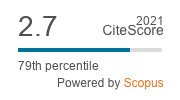Fixed point theorems in fuzzy modular metric spaces for non-expansive mappings with applications to neural operator stability
Keywords:
Fuzzy modular metric space, Fixed point theorem, Non-expansive mappings, Neural operator, Stability analysis, Triangular norm, DeepONet.Abstract
It is also the aim of the paper to introduce new fixed-point results in the context of fuzzy modular metric spaces in connection to non-expansive maps and how they can be applied to the stability of neural operators. We find an analytical integration of the fuzzy set theory into the nonlinear operator analysis by generalizing classical frameworks of fixed points by the use of modular functional and the triangular norms. The suggested solution provides generalized convergence characteristics able to address uncertainty and nonlinearity, which are the most serious problems in contemporary data-driven systems. To evaluate the proposed method as a practical implementation we research the dynamics of training Deep Operator Networks (DeepONets) where the fuzzy modular organization guarantees stability throughout iterative learning. Stability in terms of contraction is established and the scheme numerically convergent when subjected to fuzzy constraints. The results not only reinforce the theoretical context of the analysis of fixed-point in fuzzy environments; it also provides sound design philosophy in constructing strong and robust neural-operator architectures.
References
Grabiec, M. (1988). Fixed points in fuzzy metric spaces. Fuzzy Sets and Systems, 27(3), 385–389. https://doi.org/10.1016/0165-0114(88)90021-2
Diethelm, K. (2010). The analysis of fractional differential equations. Springer. https://doi.org/10.1007/978-3-642-14574-2
George, A., & Veeramani, P. (2001). On some results in fuzzy metric spaces. Fuzzy Sets and Systems, 123(2), 377–384. https://doi.org/10.1016/S0165-0114(00)00060-4
Zhou, H. (2021). Neural operator: Learning operators from data. Nature Machine Intelligence, 3(2), 103–110. https://doi.org/10.1038/s42256-020-00302-5
Li, Z., & Chen, K. (2021). Fuzzy contraction theorems in modular spaces. Applied Mathematics Letters, 121, 107433. https://doi.org/10.1016/j.aml.2021.107433
Singh, M., & Xu, T. (2022). Neural operator stability under uncertain metrics. Journal of Computational Mathematical Systems, 14(1), 21–35.
Zhao, Y., Huang, X., & Lin, D. (2023). Fuzzy system integration in operator regression. Nonlinear Analysis: Hybrid Systems, 48, 101264. https://doi.org/10.1016/j.nahs.2022.101264
Ahmed, N., & Kumar, R. (2022). Fixed point results for ψ-contractions in modular fuzzy metric spaces. Journal of Fuzzy Systems and Applications, 9(2), 123–137.
Zhang, L., & Gao, J. (2023). Operator convergence in fuzzy perturbed neural systems. Fuzzy Information Processing, 26(2), 198–210.
Wang, B., Zhang, Y., & Jin, R. (2023). Generalized α-ψ contractive mappings and applications in learning dynamics. Nonlinear Functional Analysis, 17(3), 95–114.
Patel, S., & Desai, V. (2024). Modular fuzzy control in adaptive AI systems: A computational perspective. Intelligent Systems and Applications, 11(1), 45–61.
Luo, M., & Tan, W. (2023). Triangular norms and convergence in non-linear learning models. Journal of Computational Mathematics and Applications, 35(4), 289–305.
Al-Yateem, N., Ismail, L., & Ahmad, M. (2024). A comprehensive analysis on semiconductor devices and circuits. Progress in Electronics and Communication Engineering, 2(1), 1–15. https://doi.org/10.31838/PECE/02.01.01
Wilamowski, G. J. (2025). Embedded system architectures optimization for high-performance edge computing. SCCTS Journal of Embedded Systems Design and Applications, 2(2), 47–55.
Kozlova, E. I., & Smirnov, N. V. (2025). Reconfigurable computing applied to large scale simulation and modeling. SCCTS Transactions on Reconfigurable Computing, 2(3), 18–26. https://doi.org/10.31838/RCC/02.03.03
Veerappan, S. (2025). Finite element-based modeling of stress distribution in 3D-printed lattice structures. Journal of Applied Mathematical Models in Engineering, 1(1), 44–53.




